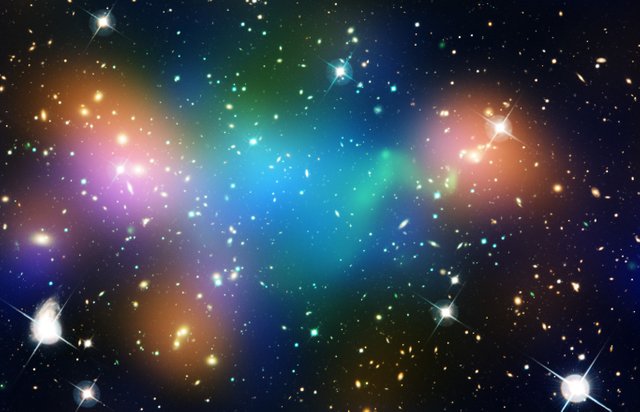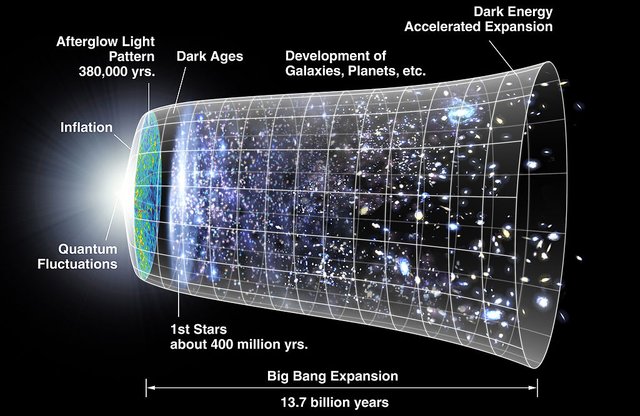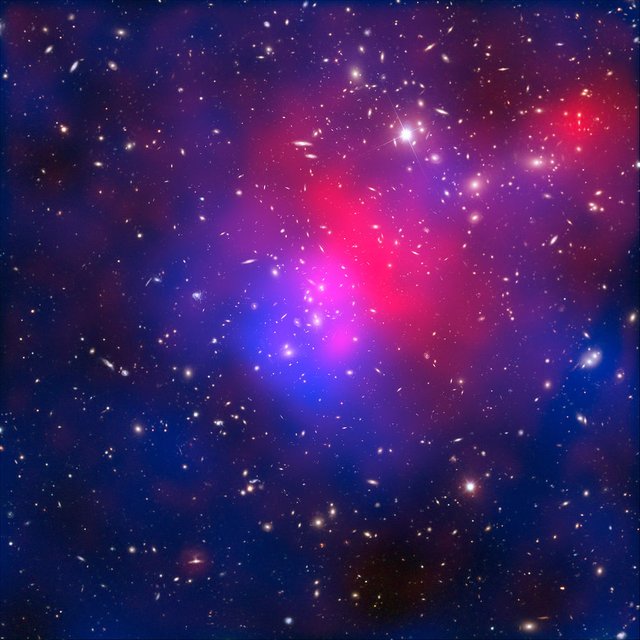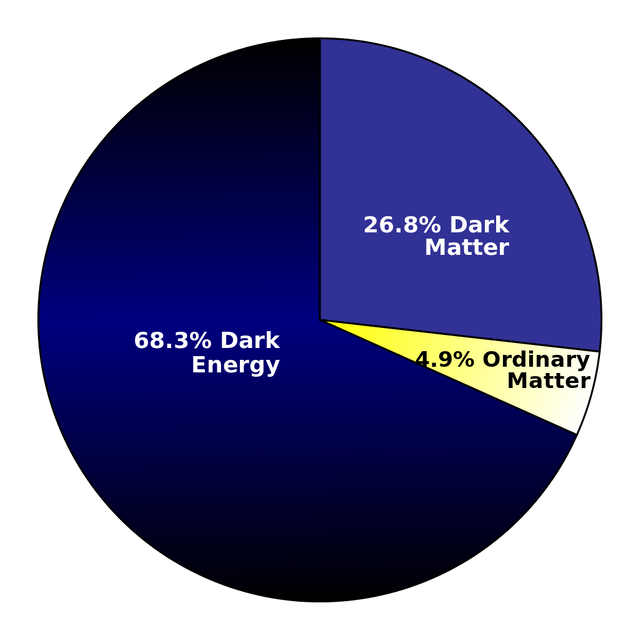Secrets of the universe: Dark energy and Dark matter
Hello, I will try to describe this mystery of our universe, which is not fully known to you. The subject is difficult, but incredibly interesting, showing how little we still know about the cosmos around us.

By NASA, ESA, CFHT, CXO, M.J. Jee (University of California, Davis), and A. Mahdavi (San Francisco State University) link [Public domain]
The expanding universe can contain enough energy to stop. It may also have a small amount of energy, then it will never stop expanding. Gravity seems to slow down the expansion of the universe over time, but this has never been observed. The universe is full of matter, and the attraction force of gravity pulls all matter to itself over time. In the era of the Hubble Space Telescope, many very distant supernovae were discovered, which prove that long ago the universe expanded more slowly than today. The expansion of the universe didn't slow down because of gravity. This is what the majority of scientists believed. As it turns out, the opposite is true. Expansion accelerates with time. Scientists have come to the conclusion that there must be something in the cosmos that we don't know about. It goes beyond Einstein's theory of relativity. This force is a dark energy.
Dark energy

By NASA/WMAP Science Team link [Public domain]
This topic is one of the greatest mysteries of the cosmos. Research indicates that about 68% of the universe is dark energy. Dark matter is about 27%. All normal matter known to mankind is less than 5% of the universe! This shows how little we know about the universe around us. Dark energy is a feature of empty spaces. As it turns out, cosmic emptiness can have its own energy. When more of this empty space appears, more of this strange energy can also appear. Thanks to this energy the universe would expand faster and faster. Some scientists claim that dark energy is a new kind of electromagnetic field that fills the entire empty space in the universe. This energy influences the expansion of the universe and is the opposite of ordinary matter and energy. It is also possible that we misunderstand Einstein's theory of gravity. If a new gravitational theory is needed to understand these concepts, then science faces a big challenge. Currently there are no new sensible theories to measure what our ancestors have discovered.
Dark matter

By NASA, ESA, J. Merten (Institute for Theoretical Astrophysics, Heidelberg/Astronomical Observatory of Bologna), and D. Coe (STScI) link [Public domain]
What is such a dark matter? It represents around 27% of the universe. It is a dark, invisible form of matter. Astronomical observations show that there is very little matter visible to our instruments in the universe. Dark matter doesn't have the form of normal matter. It isn't antimatter either. Observations show that we don't see gamma rays that arise when antimatter reacts with ordinary matter. The existence of dark matter reveals only gravitational effects associated with other objects around which it is located. The probability of the existence of this new kind of matter is high. It would explain the strange movements of galaxies in some clusters. Dark matter is detected by observing its effects on ordinary matter, which we are able to observe with our instruments. Observations in many spectra of electromagnetic radiation from infrared to X-rays are helpful in understanding this mysterious matter.

By Szczureq link [CC BY-SA 3.0 license]
To sum up, we don't really know much about the structure of the universe that surrounds us. Perhaps we are still too underdeveloped civilization to understand it all. A lot of new research is needed for the elements of this jigsaw puzzle to form a single whole. One thing is certain: The vast cosmos isn't as empty as we thought until recently. In time we will probably come to new conclusions of theory. We don't know if dark energy and matter exist at all, perhaps it's us who simply misinterpret these complex phenomena, viewed by us only from the perspective of our tiny planet Earth. Time will show whether humanity will discover this huge mystery.
Greetings to lovers of Astronomy!
References:

As far as I understand both dark energy and dark matter fits well within General Relativity.
Do you have any references to such claims?
In what sense is it opposite?
Can you explain how is it helpful if dark matter does not emit electromagnetic waves?